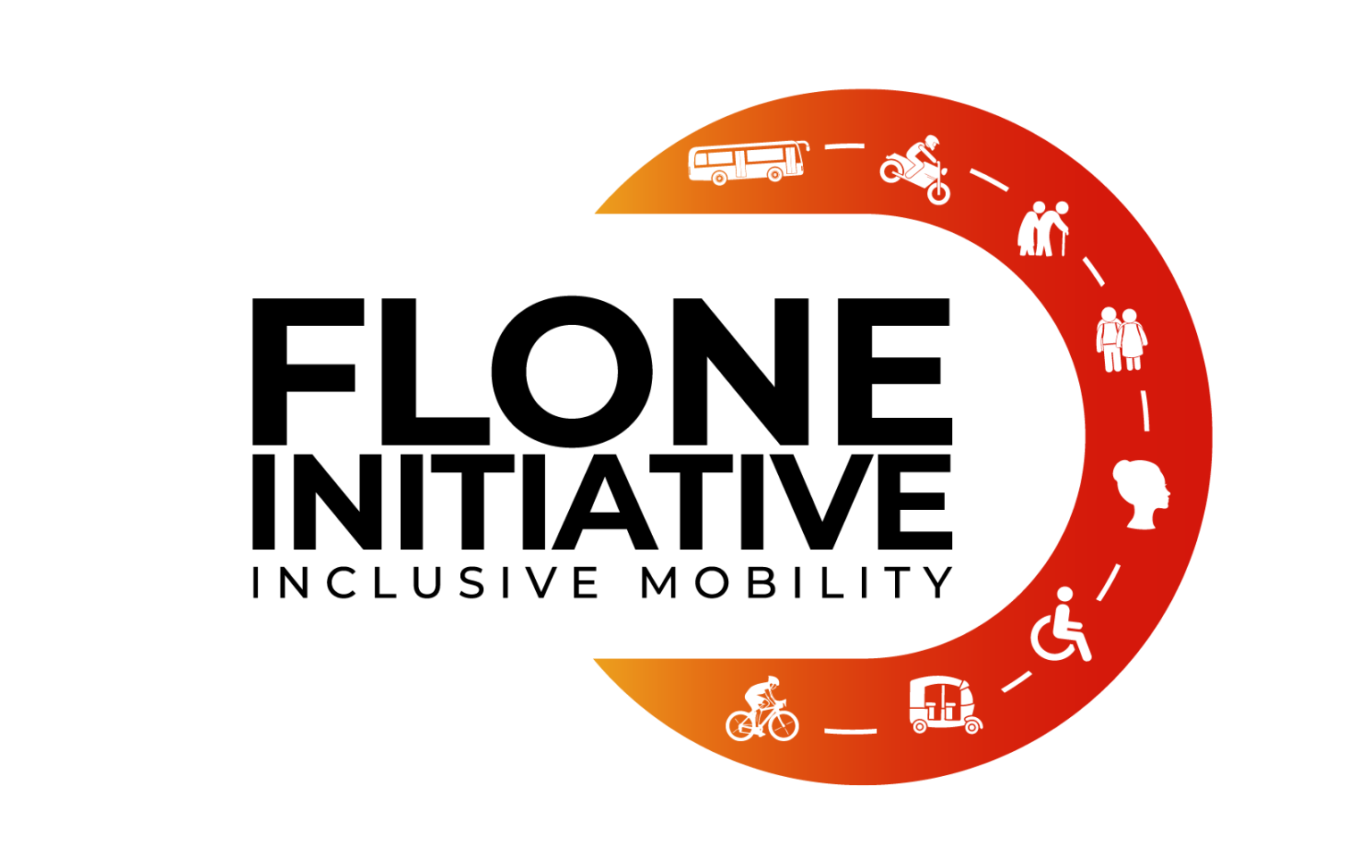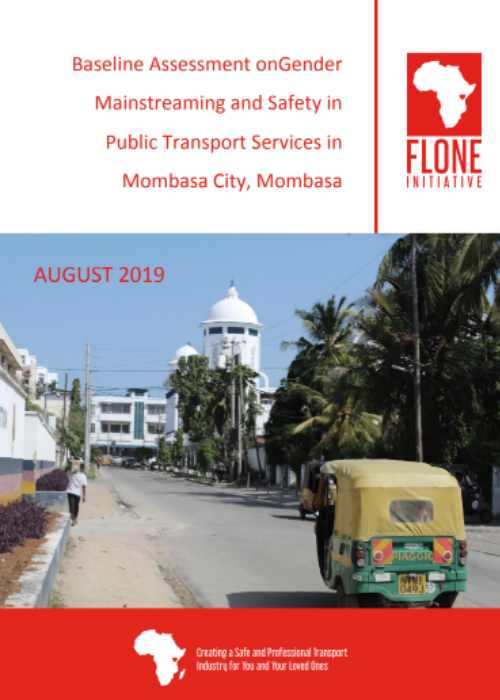Public Service Vehicles (PSV) in Kenya
Public Service Vehicles (PSV) are essential to Kenya’s economy, serving millions of people daily. Transport plays a crucial role in integrating various economic sectors. Informal motorized transport vehicles, mostly 14-seater vans and minibuses known as matatus, account for 80% of public transport in Kenya (Republic of Kenya, 2002). This report presents the findings of a baseline assessment conducted by Flone Initiative on gender equity, safety, and inclusivity in the organization, management, and operation of public transport services in Mombasa City, Kenya. It also provides recommendations for improving these services.
Study Objectives
The specific objectives of the study were to:
- Assess gender equity in the organization, management, and operation of public transport services in Mombasa.
- Determine the prevalence, nature, response, and measures in place to address sexual harassment of workers and commuters in Mombasa’s public transport industry.
- Evaluate the inclusivity and measures for special categories of commuters in the public transport sector.
- Use the recommendations to adapt the “Gender Sensitive Mini-Bus Services and Transport Infrastructure for African Cities Toolkit” to improve conditions for public transport workers and commuters in Mombasa.
Methodology
The study was conducted along selected routes in Mvita and Likoni Sub Counties of Mombasa, focusing on PSVs operating around the Likoni Ferry, Buxton, and Coast Bus stages. A descriptive survey method was used to collect data. The study consisted of three phases:
- Key informant interviews with three PSV SACCO managers and two Tuk-tuk Union Representatives.
- A survey involving 100 operators (drivers and conductors).
- Focused group discussions (FGDs) with six Tuk-tuk drivers and 12 female commuters who use matatus, tuk-tuks, and motorbikes (boda boda).
Efforts were made to include as many female respondents as possible. However, it was noted that few women work in the industry, either as SACCO managers, PSV operators, or Tuk-tuk drivers. Both quantitative and qualitative data were collected, supplemented by secondary data from literature and publications. Quantitative data came from operator surveys, while qualitative data was gathered through key informant interviews and FGDs.
Findings
The study revealed that there are very few female PSV operators in Mombasa, despite PSV SACCO managers believing they make good workers. No SACCOs have measures to facilitate women’s entry and retention in the industry. Police harassment and poor working conditions are significant challenges. Many PSV operators requested professional development programs and benefits like allowances, leave, and medical coverage.
Tuk-tuk drivers sought support in acquiring licenses and training in road safety and traffic rules. Female respondents indicated that more women might join the sector if gender equity improved, they received more support from men in the industry, and were provided with a friendly working environment. Additionally, awareness of successful women in the sector could encourage more women to join.
Sexual harassment is common and widespread, with 73% of operators aware of or having witnessed such incidents. All female commuters in the FGDs had experienced or witnessed sexual harassment, mostly perpetrated by conductors. The most common forms were physical and verbal harassment. The predominant response was inaction, with 87% of PSV operators taking no action. Female commuters and operators felt helpless and lacked confidence in reporting incidents to SACCOs, Ferry Services management, or the police. No clear reporting mechanisms or sexual harassment policies were in place.
Main Recommendations
- Enhance professionalism for PSV operators and tuk-tuk drivers through training in customer service, gender mainstreaming, and etiquette.
- Improve working conditions and provide opportunities for personal and professional advancement.
- Better organize the tuk-tuk sector with government control to clarify licensing and operational requirements and enhance security for drivers and commuters.
- Encourage commuters to report harassment incidents to SACCO officials, security personnel, or the police.
- Duty bearers such as SACCO management, Kenya Ferry Services, and the police should provide hotlines for reporting harassment and address cases promptly.
- Implement affirmative action and gender equity measures to encourage women to join the transport industry as workers and investors.
- Promote collaboration among public transport service sector players.
Flone Initiative can foster stakeholder collaboration to harmonize and enhance collaborative activities.
Report Structure
This report consists of six sections:
- Preliminaries, including the title page, foreword, acknowledgments, table of contents, list of tables and figures, acronyms, and abbreviations.
- Chapter one covers the background, study objectives, limitations, and assumptions.
- Chapter two reviews related literature to identify knowledge gaps.
- Chapter three presents the assessment methodology, including research design, respondents, sampling procedure, research instruments, data collection, data analysis, and ethical considerations.
- Chapter four presents the findings.
- Chapter five contains the conclusion and recommendations.
- The final section includes references and appendices.

